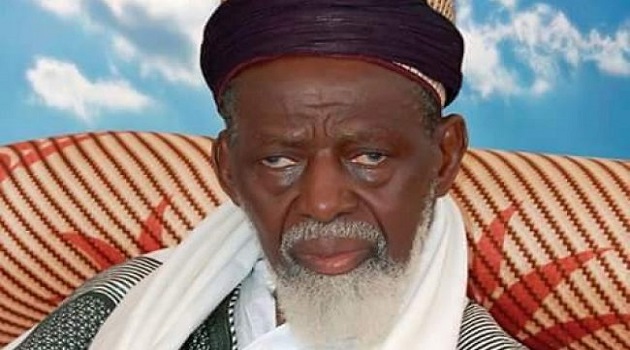The National Chief Imam Sheikh Usmanu Nuhu Sharubutu has said, he is much concern about who leads the Muslim community of Ghana as Imam after his tenure.
According to him, the Muslim community and Ghana as a whole should pray to Allah for a better replacement after his tenure as the National Chief Imam.
Speaking in an interview with Umaru Sanda Amadu on Citi FM’s Eyewitness News on Friday, 26th April, 2019, the National Chief Imam said his concern at the moment is having a better replacement after him.
”I acknowledge all the good names and tribute about me. In respect to what happens and who leads after me, we should continue to pray for Allah himself to lead the selection of who comes after me. Indeed we must pray for Allah to give us someone better than me. That is my wish and hope at the moment” he said.
He further reiterated the fact and commitment of Allah indicating that, ”When you pray for something good from Allah, he fulfills it”.
I visited church to send a ‘radical message’
The National Chief Imam Sheikh Usmanu Nuhu Sharubutu responding to what called for his visit to Christ the King Catholic Church last Sunday, he said it was a gesture to deepen religious tolerance between Christians and Muslims.
“I attended the church to send a certain signal in a radical way that the narrative of Islam must change from a religion that is seen to be a religion of hate and war mongering to a religion which is rooted in the principles of love and compassion for humanity,” he said.
According to him, he was not in the church to worship or observe Easter adding that, he wanted to cure the “Gulf of ignorance among some Muslims” about what Islam is and how they should respond to matters of religious diversity.
Biography of the national chief Imam
Osman Nuhu Sharubutu was born in Accra Old Fadama in April 23, 1923.
He studied under his father, the late Sheikh Nuhu Bin Mohammed Sharabutu, his mother, late Ayishatu Abbas (Mma Tasidi) and his uncle, the late Sheikh Mazanwaje Abbas, who was the leader of the Tijaniyyah Movement of Ghana at the time.
On like other children, he rarely had time to play because he was completely devoted to his books, which helped him tremendously to commit to memory various Al-hadiths of the Holy Prophet, Islamic texts, Islamic Jurisprudence and Islamic literature.
By the age of twelve, Osmanu had mastered the recitation of the whole of the Holy Qur’an and had become one of the youngest Huffaz at the time to have memorized numerous verses and Suras (chapters) of it. When his father, Sheikh Nuhu, realised the potentials of his son, he decided to send him to a new learning environment in Kumasi where he studied under Sheikh Abdoullah Dan Tano among other prominent scholars.
Mallam Ousman became a completely changed and reformed personality upon return from Kumasi, due to deep knowledge he acquired outside his original environment. After careful contemplation, he made the decision of devoting his time to teaching the Muslim youth who are keen in learning to become Islamic Scholars, thinkers and Sheikhs in future. Among his students are Sheikh Yahya El-Ameen, Mallam Adam Attah, Mallam Saeed, Alhadji Jibril Madaha, Mallam Ibrahima Nyass, Mohammed Muniru “Dan Alfah” and Mallam Zurkanain.
He remained in the teaching profession for a number of years. Due to his keen love for knowledge, anytime he heard of an Islamic Sheikh, he rushed to him as a student in order to learn and benefit from that scholar. Notable scholars whom he conferred within that regard include Sheikh Abubakar Fulaaty Al Kanawy from Northern Nigeria and Sheikh Alhadi (Baraw). Sheikh Baraw taught him interpretation of the Holy Quran, Classical Arabic Language, Literature and Texts whiles Sheikh Abubakar Fulaaty Al Kanawy enlightened him on Arabic Culture, Al-Hadith of the Holy Prophet, Arabic Texts and Fundamentals of Sufism.
In 1974, after lengthy debates and consultations among the country`s traditional Muslims (Tijaniyyas) and concerned parties, it was agreed by consensus that Sheikh Osmanu Nuhu Sharubutu should be appointed to deputy Imam of Tijaniyya in Ghana.
However, Sheikh Osman turned down the offer of appointment with the excuse that he was a professional Islamic teacher and educator with over 20 students under his care at the time and he was concerned about their future growth and development.
It was later and after further persuasions and persistence by the Islamic teachers that Sheikh Osmanu realised that the appointment was a divine call for him to serve Islam and the Muslim communities.
In 1993, he succeeded his cousin, Sheikh Mukhtar Abbas who was ill and physically weak as head of Tijaniyya Muslims in Ghana.


Comments are closed.